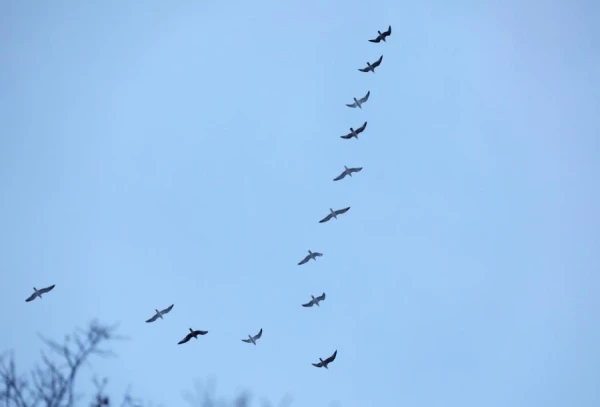
On November 11, Orthodox churches commemorate the Great Martyrs Anastasia and Abramius. In the folk calendar – Abramius the Shepherd and Anastasia the Ewe. In ancient times, this time marked the Shepherd's Holiday and shepherds were treated.
On November 11, Orthodox Christians commemorate two saints – Anastasia of Rome and Abramius of Rostov. The Great Martyr Anastasia lived in the 3rd century in Rome. A girl born into a noble family, she lost her parents at an early age. Her relatives entrusted the orphan to a Christian community, and after a few years, she was baptized.
During the persecutions of Christians, pagans tried to force the girl to renounce her faith. Another refusal led to her arrest. The torture and suffering inflicted upon the young Christian did not break her spirit. Anastasia was executed when she was only 20 years old.
Saint Abramius of Rostov, known as a hermit, lived in Russia in the 9th century. According to tradition, he built himself a hut on the shores of Lake Nero, where pagans resided.
According to the scriptures, one day John the Theologian appeared to Abramius, bringing him a staff with a cross. With this staff, Abramius destroyed the statue of the idol worshiped by the local tribes. On this site, he built a church, dedicating it to John the Theologian. Over time, pagans began to come to the temple, having accepted Christianity.
Folk Calendar: Abramius the Shepherd and Anastasia the Ewe
In ancient times, on November 11 (October 29 in the old style), villages celebrated the Shepherd's Holiday. At this time, shepherds took their flocks out to pasture for the last time in the year.
Owners with sheep paid the shepherds for their hard work. In addition to money, they were expected to treat the hired workers to a good meal and give them gifts. If the shepherds were satisfied, the owners were also happy, as it meant that in the following year their herds would be replenished with new lambs, and the animals would be healthy and strong.
Traditionally, shepherds were treated to scrambled eggs and pies. It was considered a good omen if the treats were served by girls and women celebrating their name day on this day. The shepherds expressed their gratitude to the sheep owners for their generosity by putting on cheerful performances, singing songs, and playing horns.
Abramius the Shepherd and Anastasia the Ewe: Folk Traditions
In addition to the Shepherd's Holiday, there were other traditions. For example, on Abramius the Shepherd and Anastasia the Ewe, they began to shear the sheep. This was done after the shepherds returned with the animals from the last grazing and a generous lunch held in their honor.
The Great Martyr Anastasia was considered the patroness of sheep. Her icon was placed on trees, as it was believed that the image of the saint protected the animals from wolves.
On this day, children were given riddles about sheep that have survived to this day. For example: “Across the mountains and valleys walks a fur coat and a caftan”; “Does not spin, does not weave, but dresses people.” There were also proverbs about animals: “Dressed in sheep's wool were the fathers”; “If you are a sheep, wolves will appear”; “A wolf cannot be turned into a sheep”; “In someone else's barn, sheep are not counted.”
Abramius the Shepherd and Anastasia the Ewe: Folk Omens
In ancient times, people knew: if it rains on Abramius the Shepherd and Anastasia the Ewe, it foretells the approach of winter. If cats refuse food – it indicates bad weather. If wolves appear in the fields – it is a sign of trouble: either famine or disease.
Abramius the Shepherd and Anastasia the Ewe: What Not to Do
Our ancestors knew: the holiday dedicated to the Great Martyrs Anastasia and Abramius should be celebrated in the family circle. The presence of strangers could lead to quarrels and financial losses. It was forbidden to bring strangers into the house, as behind the mask of friendly people could hide malicious intentions capable of causing significant harm.
It was believed that on Abramius the Shepherd and Anastasia the Ewe, children should not be left alone – this could lead to misfortunes. The children might start to stutter, be capricious, cry for no apparent reason, sleep poorly, and show signs of anxiety.














Leave a comment